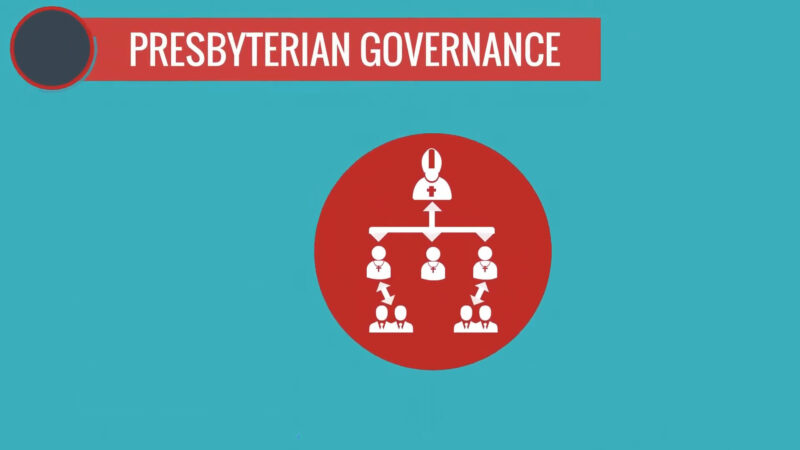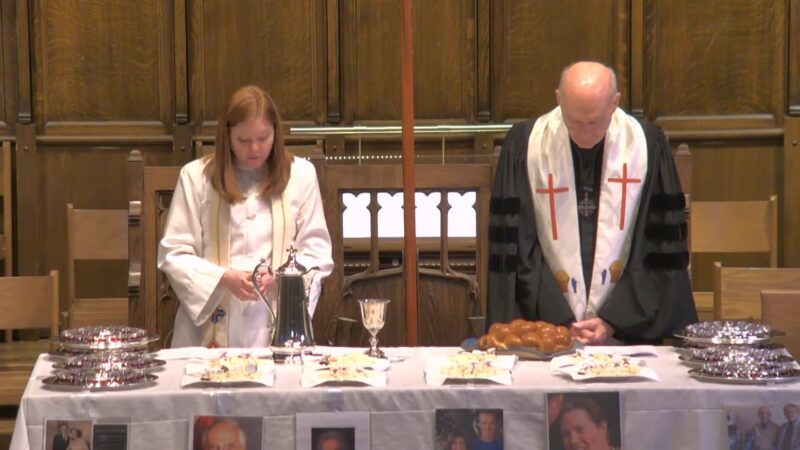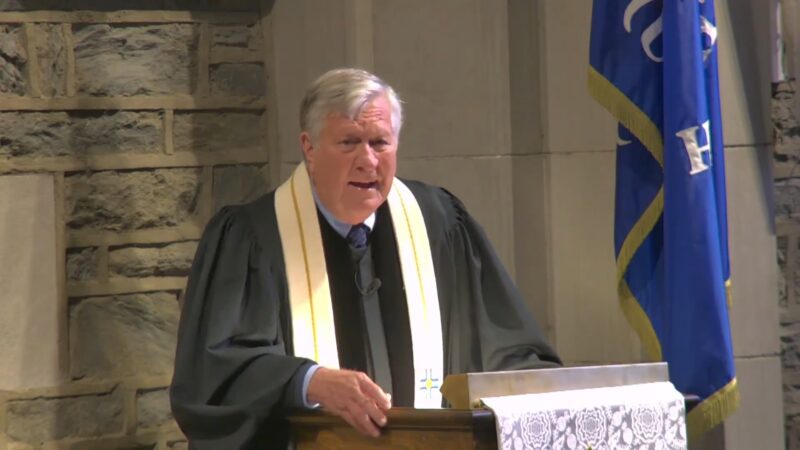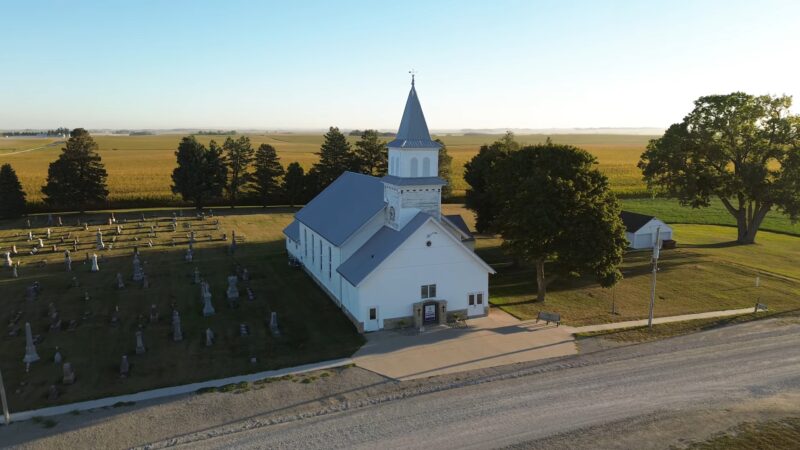Presbyterianism, a notable branch of Protestant Christianity, is distinguished by its profound theological depth and distinctive church governance. Originating from the teachings of John Calvin during the Protestant Reformation, it has evolved into a faith that intricately balances tradition with modern applicability.
This article aims to provide a comprehensive overview of what Presbyterians believe, encompassing their scriptural interpretations, governance structures, theological foundations, and societal engagements.
Origin and Historical Context
Presbyterianism finds its roots in the Protestant Reformation, particularly in the teachings of John Calvin. In the 16th century, the movement spread from Switzerland to Scotland, where it became deeply ingrained in the culture.
This history shapes many of the beliefs and practices of the church today.
- The Reformation: A period of significant religious change in Europe, leading to the formation of various Protestant denominations.
- John Calvin: His teachings emphasized the sovereignty of God, predestination, and the authority of Scripture.
The Authority of Scripture
Presbyterians hold the Bible in high regard, viewing it as the supreme authority in all matters of faith and practice. This belief stems from the Protestant principle of ‘Sola Scriptura‘ or Scripture alone.
- Interpretation: Presbyterians interpret the Bible through a lens of tradition and reason, seeking to understand its context and meaning.
- The Bible’s Role: It is considered the ultimate guide for life and a source of divine revelation.
Church Governance

Unlike other Christian denominations, Presbyterian churches are governed by a distinctive system that emphasizes democratic and representative decision-making. This system reflects their belief in the priesthood of all believers.
The Presbyterian Polity
The Presbyterian church is governed by elders, elected by the congregation. This structure reflects their commitment to communal decision-making and accountability.
- Elders and Deacons: The roles and responsibilities within the church hierarchy.
- Decision-Making: How decisions are made in a Presbyterian church, emphasizing communal discernment.
Role of the General Assembly
The General Assembly is the highest governing body in the Presbyterian Church. It exemplifies the denomination’s commitment to communal governance and oversight.
- Function and Authority: The responsibilities and powers of the General Assembly.
- Representation and Decision Making: How the assembly represents the wider church and makes decisions on doctrinal and administrative matters.
Core Theological Beliefs
Their theology is rich and multifaceted, rooted in the Reformed tradition. It emphasizes God’s sovereignty, grace, and the transformation of society.
The Sovereignty of God
Central to Presbyterian belief is the sovereignty of God. This doctrine asserts that God is the ultimate authority and ruler over all creation.
- Definition and Implications: Understanding what is meant by God’s sovereignty and its implications for faith and life.
- Predestination and Free Will: Exploring the Presbyterian understanding of predestination in balance with human free will.
The Doctrine of Grace
Grace is a key concept in Presbyterian theology. It underscores the belief that salvation is a gift from God, not earned by human efforts.
- Unmerited Favor: The understanding that grace is given freely by God, without regard to merit.
- Response to Grace: How Presbyterians are called to respond to God’s grace in their daily lives and their communities.
Worship and Sacraments

Presbyterian worship is characterized by simplicity and a focus on the preaching of the Word. Sacraments play a vital role in their spiritual life.
The Nature of Worship
Their worship is centered around the preaching of the Bible, with an emphasis on congregational participation and simplicity.
- Structure and Elements: The typical structure of a Presbyterian worship service.
- Music and Liturgy: The role of music and liturgical elements in Presbyterian worship.
The Sacraments
Presbyterians recognize two sacraments: Baptism and the Lord’s Supper. These sacraments are seen as means of grace, important for spiritual nourishment.
- Baptism: Its significance, mode, and the theology surrounding infant baptism.
- The Lord’s Supper: How it is practiced, its meaning, and its frequency in Presbyterian worship.
Social Justice and Community Involvement
They are known for their strong commitment to social justice and community involvement. This stems from their belief in the transformative power of the Gospel.
Engagement in Social Issues
The Presbyterian Church actively engages in various social issues, reflecting its commitment to living out the Gospel in society.
- Historical Involvement: Examples of Presbyterian involvement in social justice issues throughout history.
- Current Focus: Areas of social justice currently emphasized by the Presbyterian Church.
Community and Global Outreach
Outreach is a significant aspect of Presbyterian practice, both within local communities and globally.
- Local Initiatives: How Presbyterian churches engage with their local communities.
- Global Missions: The church’s involvement in international missions and relief efforts.
Education and Formation

Presbyterianism places a strong emphasis on education and personal spiritual formation. This commitment is evident in their educational institutions and programs.
Importance of Christian Education
Education is a cornerstone of the Presbyterian faith, with a focus on nurturing knowledge and understanding of the Bible and Christian theology.
- Church Education Programs: The role and structure of educational programs in local churches.
- Theological Seminaries: The importance of theological education and the role of seminaries in preparing church leaders.
Personal Spiritual Formation
Personal spiritual growth is highly valued in the Presbyterian tradition. Practices and resources are provided to help individuals deepen their faith.
- Spiritual Disciplines: The practices encouraged for personal spiritual growth, such as prayer and Bible study.
- Resources and Guidance: The materials and guidance provided by the church to aid in personal spiritual formation.
Ecumenism and Interfaith Relations
Actively participating in ecumenical and interfaith dialogue, reflecting their belief in the broader Christian community and respect for other faith traditions.
Ecumenical Involvement
The Presbyterian Church is actively involved in ecumenical movements, working towards Christian unity and cooperation.
- Historical Context: The Presbyterian Church’s history in the ecumenical movement.
- Current Ecumenical Relationships: The partnerships and cooperative efforts with other Christian denominations.
Interfaith Engagement
They engage in interfaith dialogue, recognizing the importance of understanding and respecting different religious traditions.
- Approach to Interfaith Dialogue: How the Presbyterian Church approaches conversations and relationships with other faiths.
- Practical Examples: Instances of interfaith engagement and its impact.
Family and Community Life
Family and community are central to Presbyterian life, reflecting their emphasis on nurturing faith within the context of community.
Role of the Family in Faith Formation
The family is seen as a primary context for faith development, with the church providing support and resources.
- Family Worship and Devotions: The importance of nurturing faith at home.
- Church Support for Families: The resources and programs available to support families in their faith journey.
Community Building and Fellowship
Building a strong community of faith is a priority for Presbyterian churches, with a focus on fellowship and mutual support.
- Fellowship Activities: The types of community-building activities and programs within the church.
- Importance of Community: The theological and practical reasons why community is emphasized in Presbyterianism.
Missions and Evangelism

Missions and evangelism are key components of Presbyterian practice, reflecting their commitment to sharing the Gospel and serving others.
Theological Basis for Missions
The Presbyterian Church has a strong theological foundation for its commitment to mission work.
- Biblical Mandate: The scriptural basis for missions and evangelism.
- Historical Mission Efforts: A look at the Presbyterian Church’s history in mission work.
Contemporary Mission Work
The current approach to missions in the Presbyterian Church is both local and global, adapting to changing needs and contexts.
- Local Evangelism: Efforts to share the Gospel within local communities.
- Global Mission Initiatives: The church’s involvement in international missions and its approach to cultural sensitivity and partnership.
FAQ
Can women serve in leadership roles in the Presbyterian Church?
Yes, the Presbyterian Church has long supported the ordination of women and they can serve in all leadership roles, including ministers, elders, and deacons.
How does the Presbyterian Church view other denominations?
The Presbyterian Church generally holds a respectful and cooperative view toward other Christian denominations and engages in ecumenical efforts.
Are Presbyterians predestinarian?
While Presbyterians believe in predestination, they also affirm human free will and responsibility, making their stance more nuanced than a strict predestinarian view.
What is the Presbyterian stance on social issues like LGBTQ rights?
Presbyterian views on LGBTQ rights vary, with some congregations being more progressive and inclusive, while others maintain traditional views.
Do Presbyterians practice infant baptism?
Yes, infant baptism is practiced in the Presbyterian Church, symbolizing God’s covenant with His people.
How do Presbyterians interpret the Bible?
Presbyterians interpret the Bible through a combination of tradition, reason, and contemporary understanding, always seeking to understand its historical context.
Is there a difference between Presbyterian and Reformed churches?
While closely related and sharing many beliefs, there are organizational and minor theological differences between Presbyterian and other Reformed churches.
Conclusion
Presbyterianism offers a unique perspective on Christian faith and practice, deeply rooted in history and scripture. Through its distinctive governance, rich theological beliefs, and active engagement in social justice, the Presbyterian Church continues to impact its members and the wider world.
By understanding these core beliefs and practices, one gains insight into a faith tradition that values scripture, community, and the transformative power of God’s grace.

